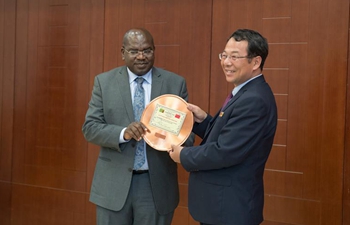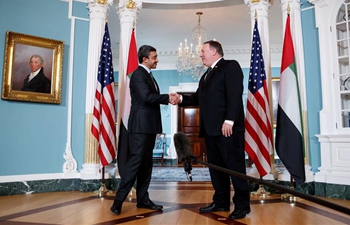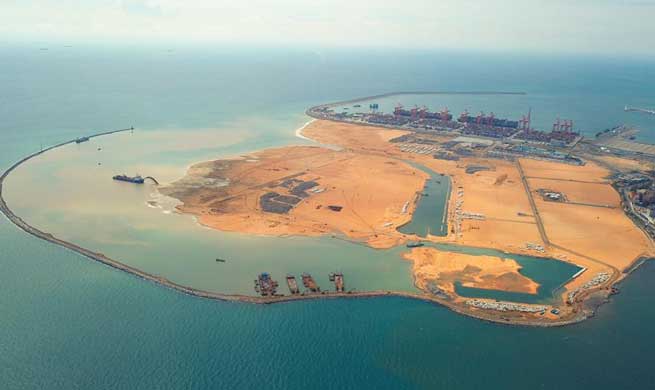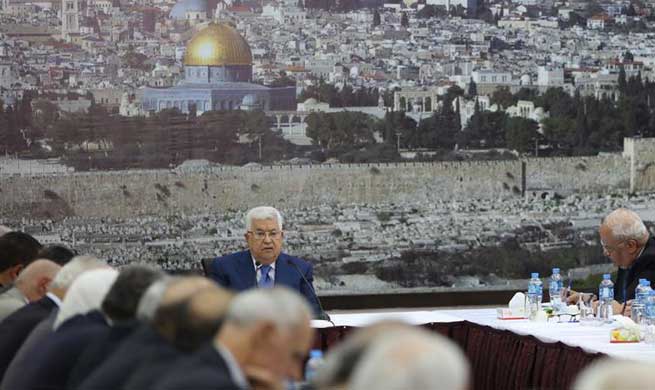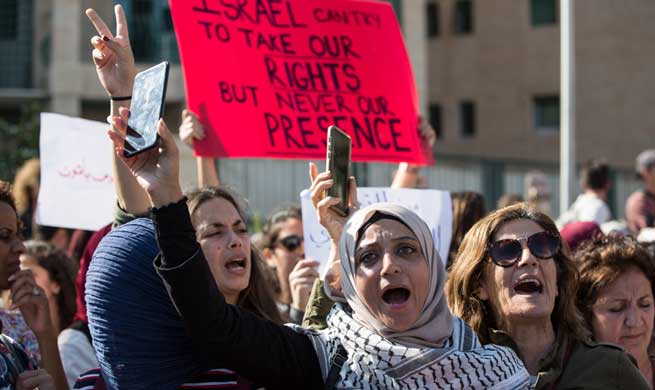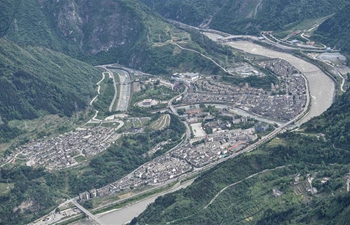RAMALLAH, May 14 (Xinhua) -- The controversial transfer of the U.S. Embassy to Israel from Tel Aviv to Jerusalem will lead to more chaos and instability in the Middle East, Palestinian analysts say.
An official inauguration of the new U.S. embassy in Jerusalem was held Monday afternoon, as Israeli and U.S. officials gathered in the city amid deadly clashes in the Gaza Strip.
Last December, U.S. President Donald Trump announced his recognition of Jerusalem as the capital of Israel, and ordered the relocation of U.S. Embassy to Israel to the disputed holy city.
Some 800 guests, including a senior U.S. Congress delegation, attended the ceremony held at the U.S. Consulate in Jerusalem, which will serve as the temporary embassy until the new one is built.
A total of 86 foreign ambassadors to Israel were invited to the opening ceremony, with about 40 of them accepting the invitation.
Palestinian analysts say the U.S. embassy move, met by wide Arab, Islamic and international rejection, will trigger escalating violence between Palestinians and Israelis as well as hindering the resumption of the stalled peace talks in the near future.
Since March 30, thousands of Palestinians have been staging weekly mass protests, known as the "Great March of Return" rally, in the Gaza-Israeli border areas, leading to the death of about 100 Palestinians by Israeli fire.
On Monday, new clashes erupted in the wake of the inauguration of the U.S. embassy in Jerusalem, where 52, including at least two minors, were killed by Israeli forces and 1,700 others injured, according to the Palestinian health ministry.
"Moving the U.S. embassy to Jerusalem after recognizing the city as the capital of Israel paves the way for the imposture of Israel's solutions to the conflict," Hani al-Masri, a West Bank think-tank member and political analyst, told Xinhua.
The recognition legitimizes Israel's occupation, settlement expansion, while opening the way for its full annexation of the West Bank, al-Masri noted.
"This will certainly undermine the two-state solution," he added.
However, Trump believes that the move will further help achieve peace between Palestinians and Israelis.
In a recorded message aired during the inauguration of the embassy, Trump said the embassy relocation from Tel Aviv to Jerusalem was "a long time coming," adding that the White House still seeks to achieve a peace agreement between Israelis and Palestinians.
Also during the ceremony in Jerusalem, Israeli Prime Minister Netanyahu called the event a "great day for peace."
But al-Masri said Trump's decision on Jerusalem shows the U.S. departure from its traditional positions which demand Israel's withdrawal from the territories it occupied in the 1967 war, the establishment of a Palestinian state with East Jerusalem as its capital and no Jewish settlement expansion.
"The Trump administration fully adopted the Israeli position on solving the conflict. The U.S. now is biased for Israel and is even its partner," al-Masri said.
The U.S. move is expected to cause an open conflict between Palestinians and Israelis which may fuel tension in the region, the Palestinian analyst warned.
The status of Jerusalem is among the thorniest issues of Palestinian-Israeli peace talks, which broke down in 2014 after nine months of U.S.-sponsored negotiations achieved no breakthrough.
The transfer of the U.S. embassy coincides with Israel's 70th anniversary of its declaration of independence, a day before the Palestinian Nakba Day, or "Day of Catastrophe," when most of the Palestinians were forced out of their cities and towns.
Trump is now preparing to present a peace plan, known as "deal of the century," to end the long-running Palestinian-Israeli conflict.
The plan, however, was long rejected by the Palestinian leadership, which seeks to create a new multilateral framework in place of the U.S. monopoly over peace negotiations.
Hamada Faraana, a Ramallah-based news analyst, said Washington's policies in the Middle East have proved a failure in resolving the Palestinian-Israeli conflict.
"Under Trump, Washington is working in coordination with Israel to pass the deal of century in harmony with Israeli interests. This is rejected by the Palestinians and will definitely face a strong reaction from the Palestinians at all levels," he told Xinhua.
Palestinian rejection is being backed by the United Nations, the European Union and Russia, Faraana pointed out.
"Waves of popular Palestinian protests are expected to escalate in the light of understandings between the Palestinian factions on the need to confront the U.S. step on Jerusalem in all possible ways," he added.




